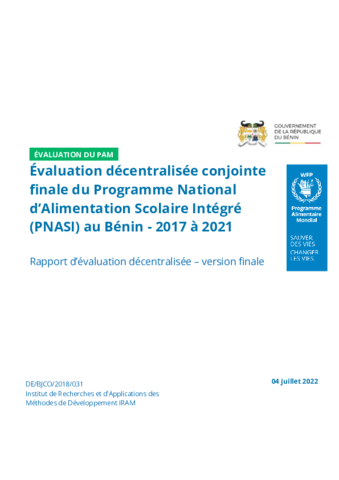
The evaluation was commissioned to evaluate the activities carried out, to prepare for the future years of implementation of the new program, and to guide future decisions regarding the partnership and was intended for both accountability and learning purposes. It focused on assessing relevance, effectiveness, efficiency, coherence, sustainability, and impact.
Overarching evaluation questions included:
- To what extent was the intervention design relevant to the Benin context?
- To what extent are the results of the intervention being achieved and what were the main factors influencing the achievement or non-achievement of results?
- How efficient has the intervention been?
- To what extent was the intervention implemented in a coherent, synergistic manner within the activity area?
- To what extent do the implementation modalities of the intervention include sustainability considerations, such as building the capacity of national and local government institutions, communities, and other partners?
- To what extent has the intervention generated or is expected to generate positive or negative effects, intended or unintended?
The evaluation covered the following activities a) School Feeding; b) Local purchase; c)Capacity strengthening.
Key evaluation findings included The PNASI suffers from the weak decision-making role of the government and the lack of inter-ministerial coordination; its national roll-out has been effective in terms of meeting the ambitious challenges of the program's coverage; local ownership is fragile and needs to be strengthened by a clear and more gender-sensitive operational strategy for community mobilization; Local purchases are reaching the proportions targeted by the project, but procurement is currently beyond the reach of Beninese cooperatives and small producers; the program offers very little consideration of gender in its design and initial results framework.
Key recommendations from the evaluation included
- R1: Anchor the PNASI in an institutional environment favorable to the sustainable functioning of school feeding,
- R2: Support the transfer of the program at the decentralized level by strengthening the role of the local structures and the National Institution
- R3: Improve the accountability of the entire program in a sustainable manner
- R4: Build a framework favourable to the operationalization of the local procurement strategy
- R5: Promote a multisectoral approach to improve access to potable water in schools and maximize the impact on nutrition
- R6: Enhance the role of women in the program
